Project to scale up novel interventions aimed at increasing climate resilience in coral reefs and leveraging innovative technology
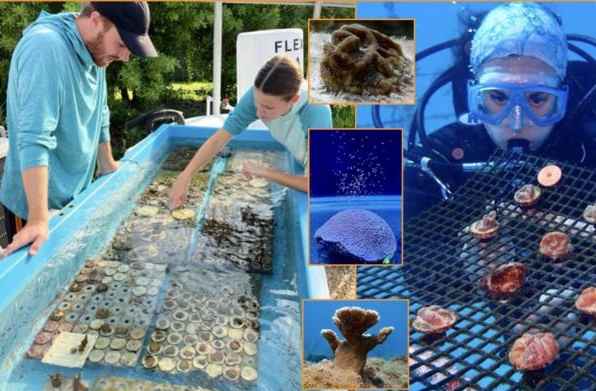
Scientists at the University of Miami and their partners have received a four-year, $16 million grant from NOAA to lead a program to implement and scale up new approaches to boost the climate resilience of Florida’s restored coral reefs.
The project brings together the University of Miami with ten South Florida partners to transform groundbreaking research into impactful restoration efforts. Together, they will create a collaborative network to share knowledge, resources, and best practices, enhancing the survival of newly restored corals in the face of climate change.
Following the devastating marine heatwave of 2023, which caused widespread coral bleaching across Florida’s Coral Reef, the team aims to scale up innovative restoration practices to strengthen the resilience of these essential ecosystems. The project will span multiple locations across South Florida, including Palm Beach, Broward, Miami-Dade and Monroe counties, ensuring a broad and coordinated effort to protect and restore coral reefs.
“Florida’s Coral Reef is facing one of its greatest challenges yet, and our team is committed to pioneering new approaches to ensure its survival,” said Andrew Baker, project lead and a professor in the Department of Marine Biology and Ecology and director of the Coral Reef Futures Lab at the Rosenstiel School. “With NOAA’s support, we plan to implement groundbreaking approaches that incorporate newly emerging science into restoration efforts designed to enhance coral resilience to increasingly warm oceans.”
The project will integrate novel interventions aimed at increasing heat tolerance in corals, including selective breeding of corals that survived the 2023 bleaching event, the cross-breeding of Florida’s endangered elkhorn corals with resilient elkhorns from outside Florida, the conditioning of baby corals to warmer temperatures and their provisioning with heat-adapted algae that help them resist bleaching, and the use of beneficial probiotics to help corals deal with heat stress. By focusing on breeding resilient populations, the project will significantly boost the number of climate-resilient corals introduced into the reef ecosystem each year.
The initiative will utilize innovative technologies, such as new cement materials, hydrogels, and anti-algal coatings, developed through previous research, to improve coral survival and enhance restoration success.
A wider view: Conservation aquaculture anchors coral reef restoration
Beyond ecological restoration, the project will focus on outreach and training, highlighting the long-term commitment needed for coral recovery. Bilingual community programs at the Frost Science Museum and citizen science efforts across seven counties aim to promote ocean stewardship and generate public support for sustainable coral restoration.
Southeast Florida’s coral reefs are suffering severe losses due to climate change, disease, poor water quality and other factors. These vital ecosystems support Florida’s fishing and tourism industries, generating $2 billion in annual revenue and supporting 70,400 jobs, according to NOAA. Additionally, the reefs protect coastal communities, like Miami and Fort Lauderdale, from hurricane-related flooding and storm surges.
“This collaborative project exemplifies the kind of innovative, community-focused solutions we need to protect Florida’s coral reefs,” said Baker. “By enhancing coral resilience, this project will contribute to coastal protection efforts in South Florida, highlighting the invaluable role of healthy reefs in safeguarding urban infrastructure from flooding and erosion.”
Now that you've reached the end of the article ...
… please consider supporting GSA’s mission to advance responsible seafood practices through education, advocacy and third-party assurances. The Advocate aims to document the evolution of responsible seafood practices and share the expansive knowledge of our vast network of contributors.
By becoming a Global Seafood Alliance member, you’re ensuring that all of the pre-competitive work we do through member benefits, resources and events can continue. Individual membership costs just $50 a year.
Not a GSA member? Join us.
Author
Tagged With
Related Posts
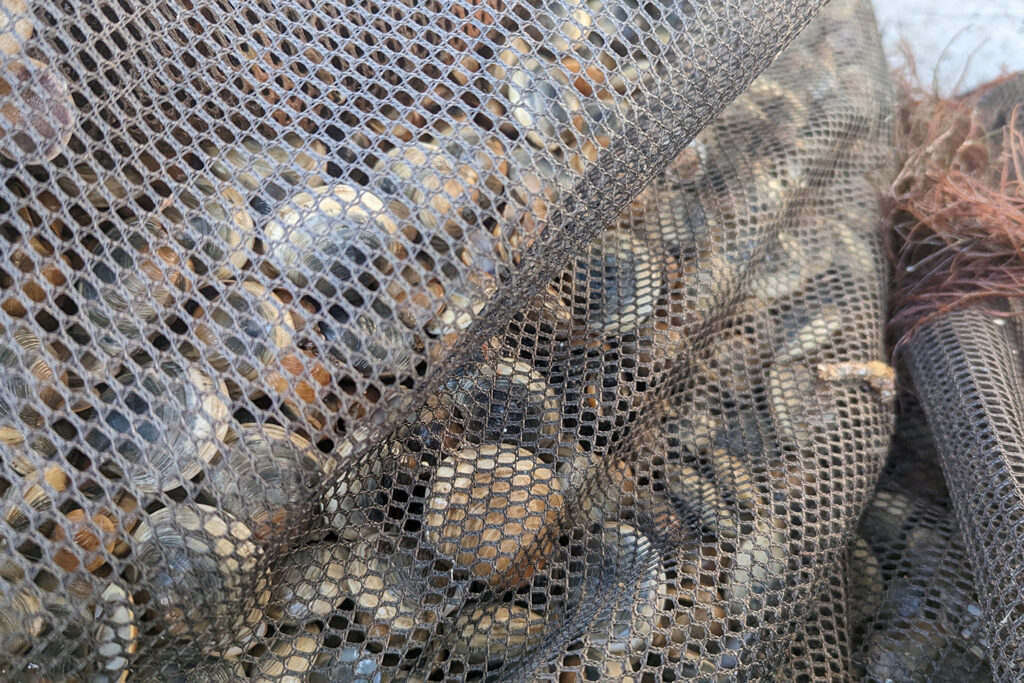
Intelligence
Florida’s weatherbeaten clam farming community may be hanging by a thread, but it’s a strong one
After three hurricanes in 14 months, Cedar Key clam farmers reckon with insurance claims, lost markets and a climate change’s potential for more.
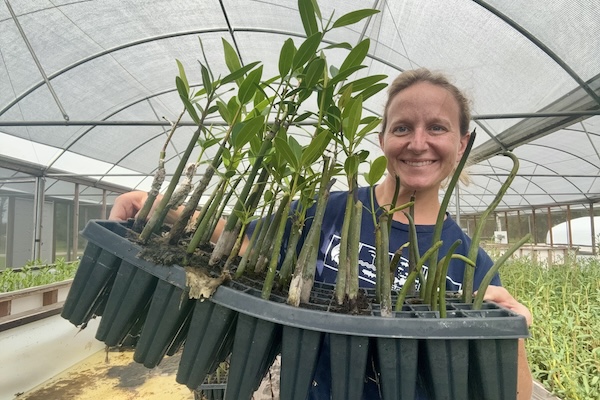
Responsibility
Pine Island Redfish and MANG team up on coastal restoration initiative in Florida
The Florida land-based red drum producer will aid a coastal restoration project to collect and nurture mangrove seeds for replanting.
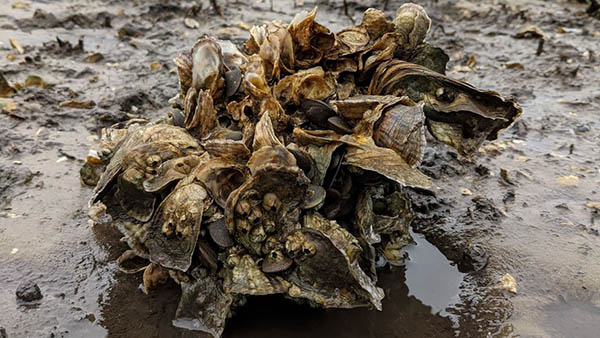
Innovation & Investment
Can drones detect early signs of oyster reef deterioration?
New research shows that the digital elevation map produced by drones can accurately determine the condition of an oyster reef.
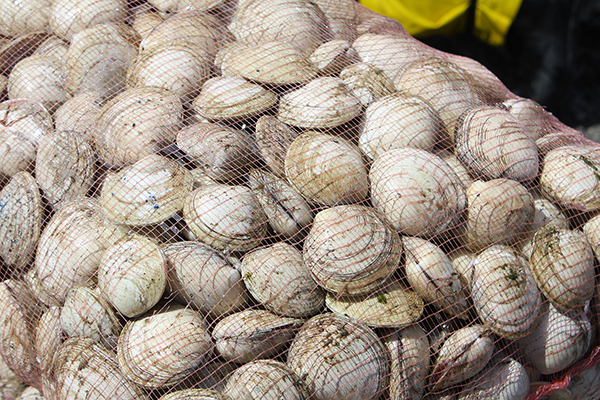
Responsibility
All clams on deck: How restorative aquaculture can repair Florida estuaries
New legislation aims to tackle tough environmental issues in Florida estuaries by bolstering the number of clams and seagrass through restorative aquaculture.



